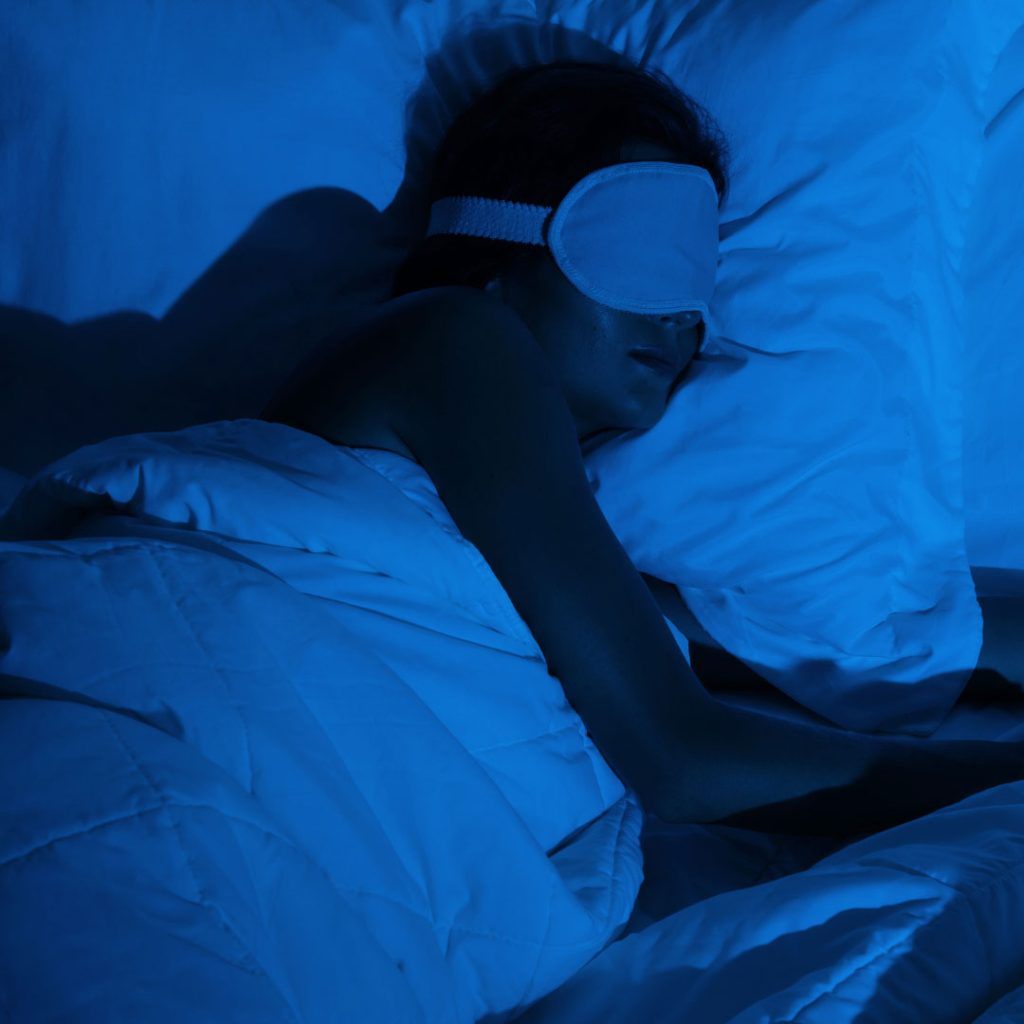Reset Your Circadian Rhythm for a Healthier, More Energized You
With the start of a new year comes the opportunity to set New Year’s Resolutions, and one of the best changes you can make is to prioritize your health. And, among the most important aspects of well-being, is making sure you are getting quality sleep. Poor sleep is an increasing concern and can significantly affect your ability to function at your best and lead a fulfilling life. When sleep quality suffers, a range of issues can follow, including the risk of developing sleep disorders, chronic diseases, impaired brain function, and weakened immunity. That’s why this year, we’re saying goodbye to sleep deprivation and focusing on resetting your circadian rhythm for better health and energy.
For context, circadian rhythms are natural, internal processes that regulate the body’s sleep-wake cycle over a 24-hour period. These rhythms occur in nearly all living organisms, but in humans, circadian rhythms are controlled by a “master” clock in the brain. This function helps us stay in sync with the world around us, as well as influence our hormone release, which determines when we feel awake and when we feel tired. Exposure to darkness, for instance, triggers the production of melatonin, a hormone that signals the body to prepare for sleep. Creating an environment that promotes relaxation can help your body transition into a restful state, allowing you to regulate your natural cycle. That’s why if you’ve been struggling with sleep, a great way to start the year is by gradually resetting your sleeping habits.
Here are some lifestyle changes and methods you can incorporate into the new year to readjust your circadian rhythm:
1. Set Consistent Bed and Wake Times
By establishing a regular bedtime and wake-up schedule, you can effectively reset your circadian rhythm. It’s important to keep the same times each day, even on weekends. While this may seem difficult, it’s worth trying, especially if you’re already having trouble resting properly. This consistency strengthens your body’s natural sleep-wake cycle, making it easier to drift off and wake up feeling refreshed.
2. Create a Comfortable Sleeping Environment
Ensure your bedroom is conducive to restful sleep. Keep your room cool, dark, and quiet and invest in a comfortable mattress and pillows to support your back. Consider using blackout curtains or a white noise machine if you know external light or noise disrupts your sleep. By creating a “Zen” surrounding, your body will be able to relax quicker and easier.
3. Get Daily Exposure to Sunlight
Did you know that natural sunlight helps regulate your circadian rhythm by influencing melatonin production? That’s why getting that dose of Vitamin D is so important. For the new year, aim to get outside more, either in the morning or early afternoon, for just 15-30 minutes. This exposure to sunlight will help reinforce your body’s natural wakefulness and improve sleep quality later in the day.
4. Engage in Physical Activity
Regularly exercising helps regulate your body’s natural sleep-wake cycle and raises your body’s core temperature, which signals the body clock that it’s time to stay awake. About 30 to 90 minutes after exercising, however, the core temperature begins to fall, which encourages feelings of sleepiness. This cooling effect, combined with the stress reduction and mood improvement from a regular workout routine, helps your body decompress and prepare for rest. Be mindful not to engage in vigorous activity too close to bedtime, as it can increase adrenaline and make it harder to fall asleep. Aim to finish exercising at least a few hours before going to bed.
5. Cut Back on Alcohol and Caffeine
Both alcohol and caffeine can disrupt your routine, so managing their intake is important for better sleep quality. Caffeine lingers in your system for hours, blocking adenosine, a neurotransmitter that promotes relaxation and sleep. Alcohol, on the other hand, interferes with the sleep cycle, especially the deeper stages like REM, leading to fragmented sleep and grogginess. To improve your sleep, limit or avoid these substances, especially before bedtime. Instead, opt for caffeine-free herbal teas in the evening, and if you choose to drink alcohol, try to do so earlier in the day.
6. Limit Screen Time
Excessive exposure to blue light from phones, tablets, and computers can interfere with your body’s production of melatonin. This disruption makes it harder to fall asleep and wind down at night. To improve your sleep quality, try to limit screen time at least one hour before bed. If you need to unwind, consider alternative activities such as reading a book, practicing meditation, or listening to calming music. These relaxing activities help signal to your brain that it’s time to rest, promoting a smoother transition to sleep.
7. Talk to Your PCP
If you are experiencing severe sleep disturbances, such as chronic insomnia or other sleep disorders, don’t hesitate to talk to your primary care provider (PCP). They can help you identify underlying causes and recommend appropriate treatments or strategies to improve your sleep schedule.
By embracing these changes, you can gently reset your circadian rhythm and cultivate a more balanced, restful sleep schedule for 2025 and the years to come. This thoughtful approach will not only enhance your sleep but also set the stage for a future filled with more energy and the vitality you need to take on each new day.
Ready to get your sleep on track? Book an appointment with one of Mount Sinai Medical Center’s PCPs by calling 305.674.CARE.


